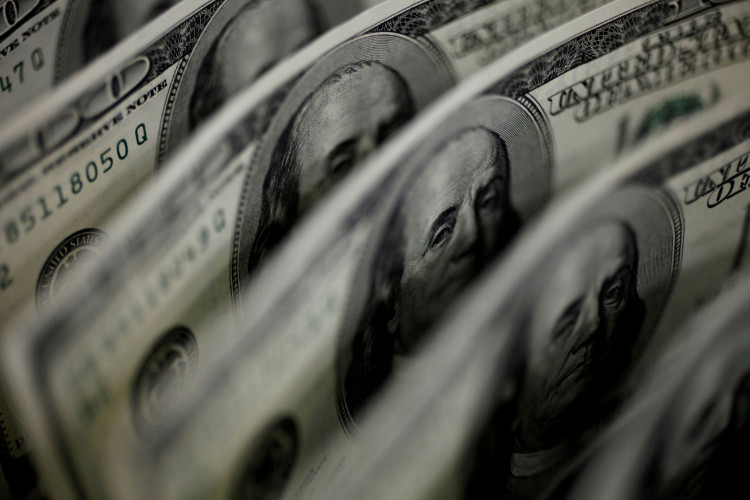The U.S. dollar strengthened broadly on Tuesday as Federal Reserve Chair Jerome Powell tempered expectations of aggressive interest rate cuts, pushing back against the speculation that has gripped financial markets in recent weeks. The dollar index rose by 0.4%, reaching 101.11, while Powell's remarks reshaped the outlook for future monetary policy as traders recalibrated their expectations ahead of a crucial week for economic data.
In a speech at a conference in Tennessee, Powell emphasized that the Federal Reserve is unlikely to rush into large rate cuts. "This is not a committee that feels like it is in a hurry to cut rates quickly," he stated, suggesting a preference for more measured adjustments moving forward. Following his comments, market forecasts shifted significantly, with the probability of a 50 basis-point cut in the upcoming November meeting declining to 35.4% from 53.3% the previous day, according to data from CME Group's FedWatch Tool.
The Fed's recent actions, which included an unexpected half-point reduction last month, had led to rampant speculation about further aggressive cuts. However, Powell's tone during his address indicated a pivot towards a more cautious approach. Analysts noted that while the door remains open for a larger cut if economic data deteriorates, the Fed's current posture suggests that any future reductions will likely be more conservative.
"The door has not been closed on a 50 bps cut, but Powell clearly thinks markets are overly excited," said Matt Simpson, senior market analyst at City Index. This tempered enthusiasm comes as traders await a slew of U.S. economic reports, including the Institute for Supply Management's manufacturing index and the monthly jobs figures, which could further influence the dollar's trajectory.
While the dollar gained, the euro experienced a decline, trading at around $1.1085, marking a third consecutive day of losses. This drop followed disappointing inflation data from Germany, which saw price growth fall to its lowest level since early 2021. The figures fueled speculation about potential rate cuts by the European Central Bank (ECB), with Deutsche Bank recently adjusting its forecast to anticipate a rate cut in October, previously expected in December.
As the euro weakened, the Japanese yen remained steady against the dollar, holding close to its monthly range as traders assessed the political landscape with Japan's new Prime Minister Shigeru Ishiba poised to take office. Despite the market's perception of Ishiba as a hawk on monetary policy, recent statements indicated a cautious approach to immediate interest rate hikes.
"Ultimately, our view on the BOJ remains more hawkish than the market's pricing," noted Francesco Pesole, a strategist at ING, emphasizing the uncertainty in Japan's monetary policy direction.
In commodities, oil prices fell despite rising tensions in the Middle East, as investors remained skeptical of supply disruptions amid weakening global demand. Brent crude futures dropped by 0.7% to $71.23 per barrel, reflecting the market's broader immunity to geopolitical events in the region. Analysts at Pepperstone observed that the market's response to Middle Eastern news was less pronounced than expected, indicating a shift in focus towards supply dynamics rather than conflict.
The bond market responded positively to Powell's remarks, with U.S. Treasury yields decreasing as traders speculated on the Fed's future course. The yields on 10-year Treasuries fell by six basis points to 3.74%, while eurozone inflation data further supported the case for faster ECB rate cuts, resulting in German 10-year bond yields dropping to their lowest since January.
As the global economy grapples with the implications of shifting monetary policies, U.S. stocks reacted cautiously to the news. The mixed performance in stock futures reflected the uncertainty surrounding upcoming economic indicators, which will likely shape investor sentiment in the coming days.






